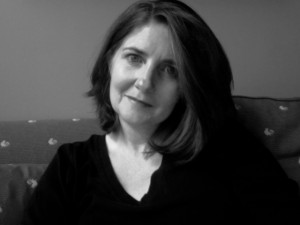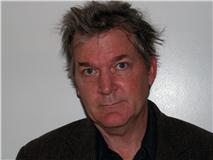 Susan Tepper: Matt, your story “Dinner at the Harmony Restaurant“ opens without harmony but with great ferocity. Your first line:
Susan Tepper: Matt, your story “Dinner at the Harmony Restaurant“ opens without harmony but with great ferocity. Your first line:
I ripped the glasses from his face and throwing them on the floor, stomped them into the polished floorboards.
Yikes! The energy here is wild and compulsive! Was this taken from a true life incident?
Matt Potter: Sort of. I was at a dinner and who would pay what as the dinner ended, caused unease, until it was sorted out i.e. some of us said we would only pay for ourselves, and thus would not split the bill as others suggested. But yes, I can be honest and forthright and compulsive and physical. Rudeness and lack of thought always make me angry. There are lots of stories of me taking matters into my own hands and leaving others dumbfounded with my ferocity. Actually, one of them is detailed in my non-fiction piece “A Free Rinse.” Aah, I’ve never suffered fools gladly.
But yes “Dinner at the Harmony…” has a great, fun, ferocious beginning. With flash I think you have to jump right in – BANG! – yet still retain some mystery so it propels the reader through your story … which I guess is true of any story. In “Dinner,” you know what’s happening – it’s outrageous – but you don’t know why yet.
Susan: Oh, it is a relief to know it didn’t quite happen as written! I also do not suffer fools gladly. Though I tend to get quite verbal when I feel the fools come marching in…
What I love about this story is that after the initial “violent” opening, we are hit with another bit of violence, but this one is a veritable avalanche of sensory details. Everything about this story is intense in the sensory aspect. You write:
“… anemone shells and tortoise shells and quail egg shells left over from the Mauritian bouillabaisse and tipped them over his balding head.”
Hmm… his balding head and shells. I’m getting a connection here.
Matt: The bald head and the egg shells were a happy accident, at least in my mind, when I was writing. I was seeing the scene in my head, in the restaurant where the real dinner took place, though the host of the dinner in real life was a female friend, and she was not suggesting we split the bill. I recall thinking a list here would be good — the prompt was broken shells? — and I like lists in stories. They have a rhythm and not many writers get that rhythm right.
So I had to think of exotic creatures that come in shells… hence the quail eggs: I wanted something else from the sea but couldn’t think of one! And a friend works on and off in Mauritius, and I know it has an Anglo-French history so there is the bouillabaisse reference — just a Provencal or Marseilles bouillabaisse seemed too ordinary. And the real restaurant had some interesting flavoured-desserts and so it all kind of messed together in the image of the exotic shells and debris sliding and slipping down the bald head.
Susan: Very interesting how the sensory aspect of story works differently for different authors. Yes, saying Mauritian bouillabaisse is way more exotic, for sure! Because it pulls the reader into the Mauritius, and even if you don’t know the particulars of that place, there is that exotic element around it that “spices up” the story in a very cool way.
But getting to plot and character. Your “guy” who is taking all this abuse, well, he’s taking it. At this point, he still does not react. Now I’m looking at him and I’m thinking: well he must be carrying an awful lot of guilt. And not just about this meal. He just oozes guilt, to my mind. And I’m getting real interested in him. I mean, who just sits there and takes this amount of shit? Is there a hidden sub-text to his character?
Matt: This story is about ego, and not the ego of the man “taking it,” who may or may not be the host: that’s not clear. I think the dumped-on man is probably stunned and embarrassed and completely out of his depth, with both the general turn of events and the ferocity of the reaction: here we were having a nice time and you have completely overreacted and maybe if I just sit here – as I am completely stunned anyway – you will rant and roar and then go away. Whereupon we can survey the damage, clean up the mess and probably never see you again. He has probably put up with the narrator’s anger before … and this is the last time. Of course, if he was the narrator’s boyfriend, it would be even funnier.
Susan: Of course you are the author of this story, and you have your opinion of what is going down here. But for the reader, a story often takes on a different “bent” than what the author had in mind. Which, to me, is what makes fiction so magical. Both the writer and the reader get to decide what is what. I once read this comment: “The reader can only take the sum total of who he/she is to any story.” The simple truth of that just blew me away.
So what I’m getting at is this: there seems to be an underlying sado-masochistic quality here. The violence, though funny, is extreme. And the victim is just taking it. And you did imply something about him “conceptually” being the narrator’s boyfriend. Which, to my mind, makes a lot of sense. Remember this one: “The sadistic man had a masochistic wife. He beat her every night, they lived a very happy life.” I think this story is far more dangerous than what appears as the surface danger. I wonder if there is a sequel to all of this perhaps stewing in your brain?
Matt: Hmmm … no. But I am actually a very passionate and at times over-the-top and violent person. I think I have a lot of anger, which stems from — I believe — feeling I was being ignored, or not taken seriously, when I was a child. (This sounds soooo pathetic, but it is a driving force …) Not having my feelings or opinions acknowledged now, in my mid 40’s, brings these same feelings to the fore. I often write about sex — it is a favourite topic — but “Dinner at the Harmony…” was not about sex for me. It was about ego: you are not taking me and my wishes seriously. However, I can see why others would think it is about sex, especially if they have read other stories of mine. The man being dumped on was never the story for me, as this was a case of me being in the story, even if the character actually wasn’t me. Really, he was just a cypher for “me” to rage against. He may never have actually suggested they split the bill anyway: it could well have been someone else at the dinner, but the narrator just chose him to vent against.
The man being dumped on was colourless and hairless and wore round, wire-rimmed glasses and has piggy eyes (in my imagination) and probably wore brown (!) and is an all-round blah looking person, and was probably too quiet too. But you are right about readers bringing themselves and their sum experience to the table. But for me, the story was a joke told against the narrator, but by him.
Maybe the dumped on bloke deserves his own story now.
Read “Dinner at the Harmony Restaurant“ by Matt Potter
Monday Chat is a bi-weekly series in which Susan Tepper has a conversation with a Fictionaut writer about one of his or her stories. Susan is Assistant Editor of Istanbul Literary Review, fiction editor of Wilderness House Literary Review, co-author of new novel What May Have Been, and hosts FIZZ, a reading series at KGB Bar.

 Robin Black’s story collection
Robin Black’s story collection 
